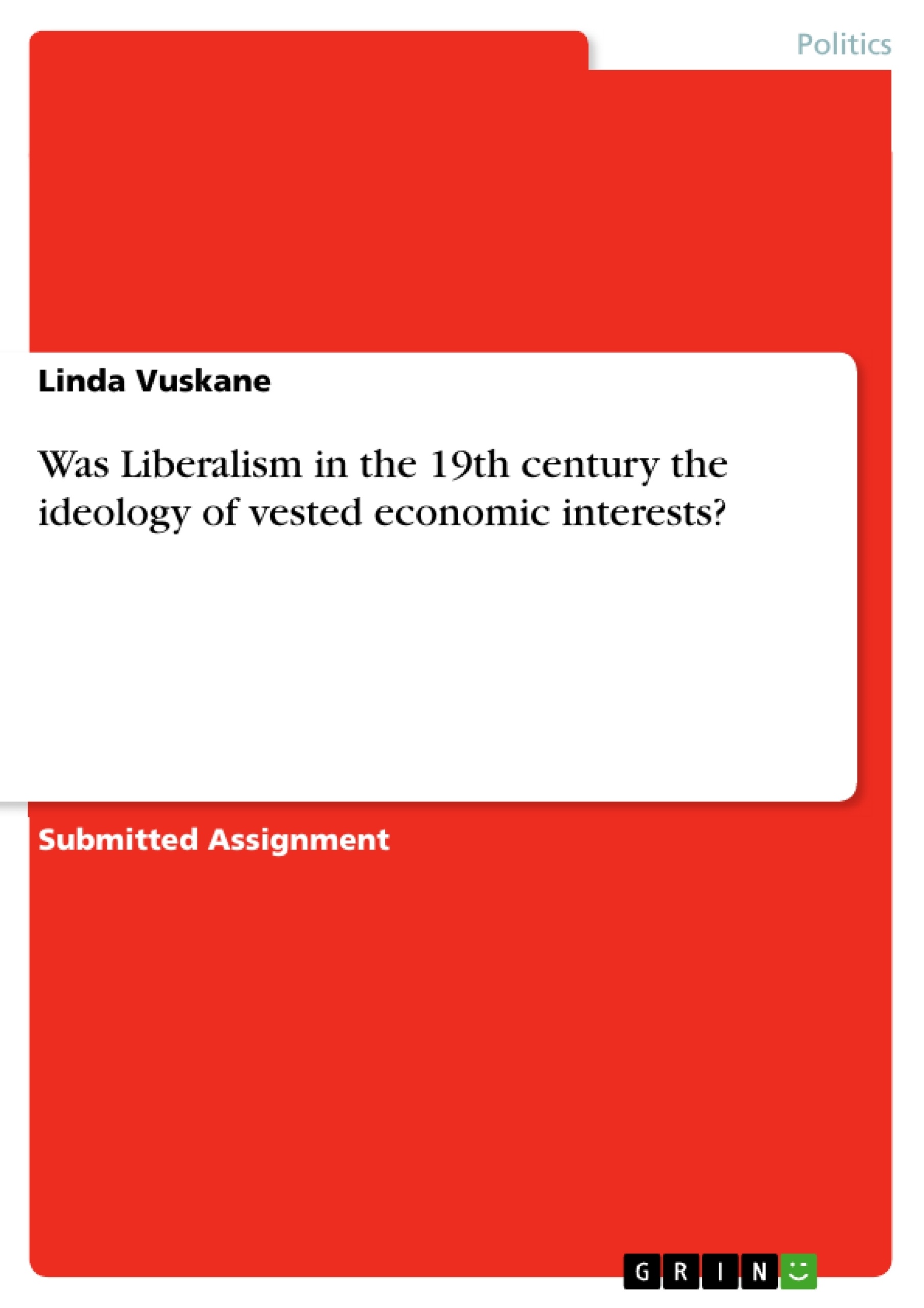This report sets out to investigate whether 19th century liberalism was the ideology of vested economic interest. The proposals of early liberals constituted an attack not only on the claims of the feudal aristocracy but also on the economic basis of society. They advocated an industrialized and market economic order, which would by free from government interference and free trade between countries.
The paper concludes, that the laissez faire capitalism arguably was a central doctrine in the 19th century. In many ways it served to promote the interests of the new class of manufacturers. Some have argued that the 19th century liberalism could be hence regarded as the elitist liberalism of the industrial society. However, liberalist original intentions were to promote the equality and freedom from the arbitrary powers, which were based on a positivist view of human nature and a vision of virtuous citizens unified by common values. This serves to demonstrate that liberal proposals were not explicitly elitist.
Table of Contents
- INTRODUCTION
- ECONOMIC LIBERALISM IN THE 19TH CENTURY
- Liberal proposals
- Other influential thoughts
- Utilitarianism
- Ricardo and Malthus
- Social Darwinism
- Government position
- CONSEQUENCES OF LAISSEZ FAIRE
- Economical impact
- Moral influence
- CONCLUSION
Objectives and Key Themes
This report aims to investigate whether 19th century liberalism was the ideology of vested economic interests. It examines the key proposals of early liberals, analyzes the influence of key thinkers like Bentham, Ricardo, and Malthus, and explores the impact of laissez-faire economics on both the economy and society. The report also delves into the role of government and the relationship between liberalism and the rise of industrialism.
- The relationship between liberalism and economic interests in the 19th century
- The impact of laissez-faire economics on society and the economy
- The role of government in shaping economic policies
- The influence of key thinkers on liberal thought
- The impact of industrialism on liberal ideas and social structures
Chapter Summaries
- Introduction: The introduction sets out the objective of the report, which is to investigate whether 19th century liberalism was the ideology of vested economic interest.
- Economic Liberalism in the 19th Century: This chapter examines the proposals of early liberals, highlighting their attack on feudalism and their advocacy for a market economy free from government interference. It also delves into the influence of utilitarianism, Ricardo and Malthus' theories, and the concept of Social Darwinism.
- Consequences of Laissez Faire: This chapter explores the economic and moral impacts of laissez-faire policies. It highlights the widening gap between the rich and poor, the rise of exploitation, and the ethical implications of viewing individuals primarily as producers and consumers.
Keywords
The primary keywords and focus topics of this work include: 19th century liberalism, laissez-faire economics, economic interests, industrialism, utilitarianism, Ricardo, Malthus, Social Darwinism, economic impact, moral influence, government role, and inequality.
- Quote paper
- Linda Vuskane (Author), 2011, Was Liberalism in the 19th century the ideology of vested economic interests?, Munich, GRIN Verlag, https://www.grin.com/document/511292




